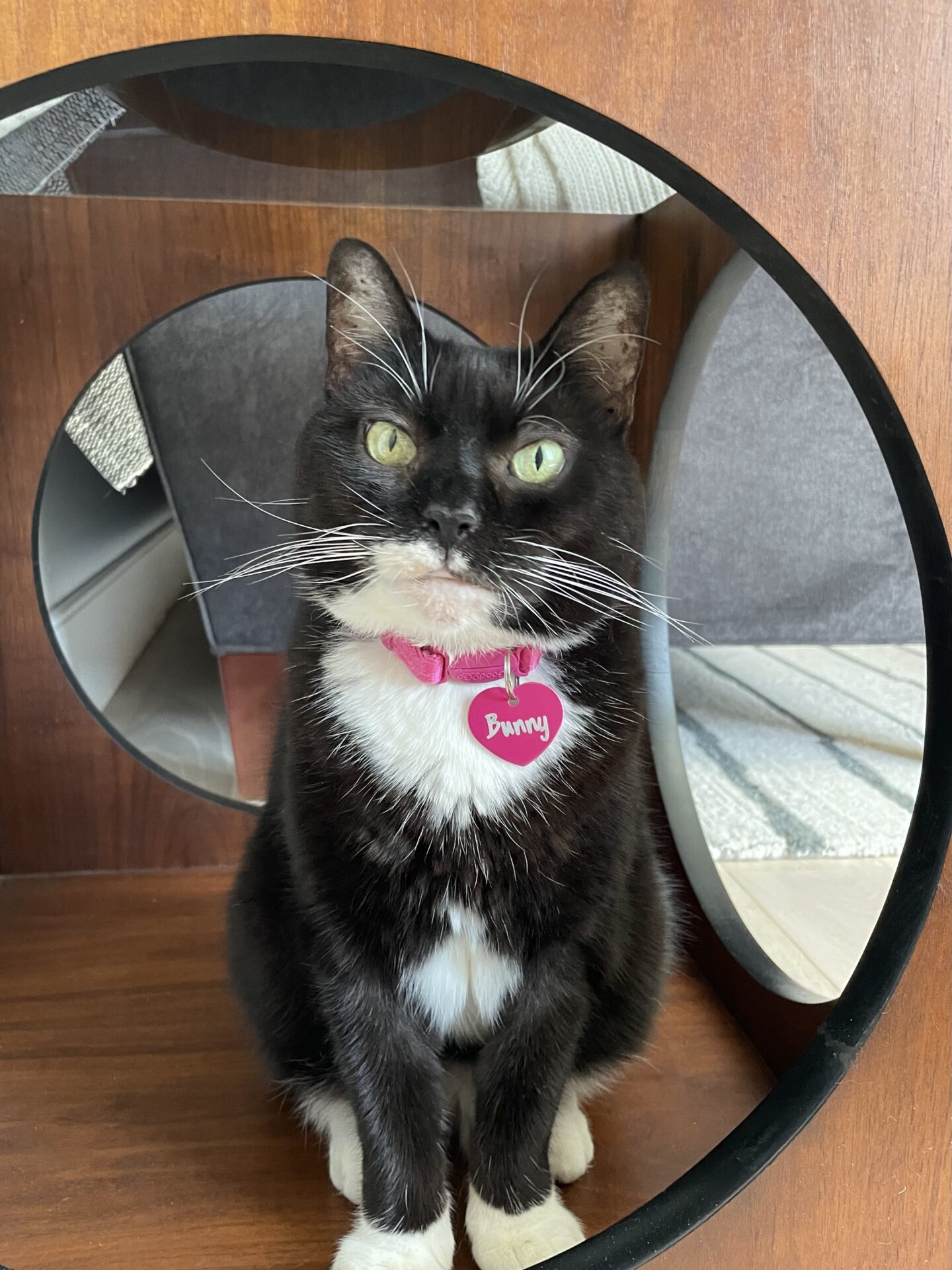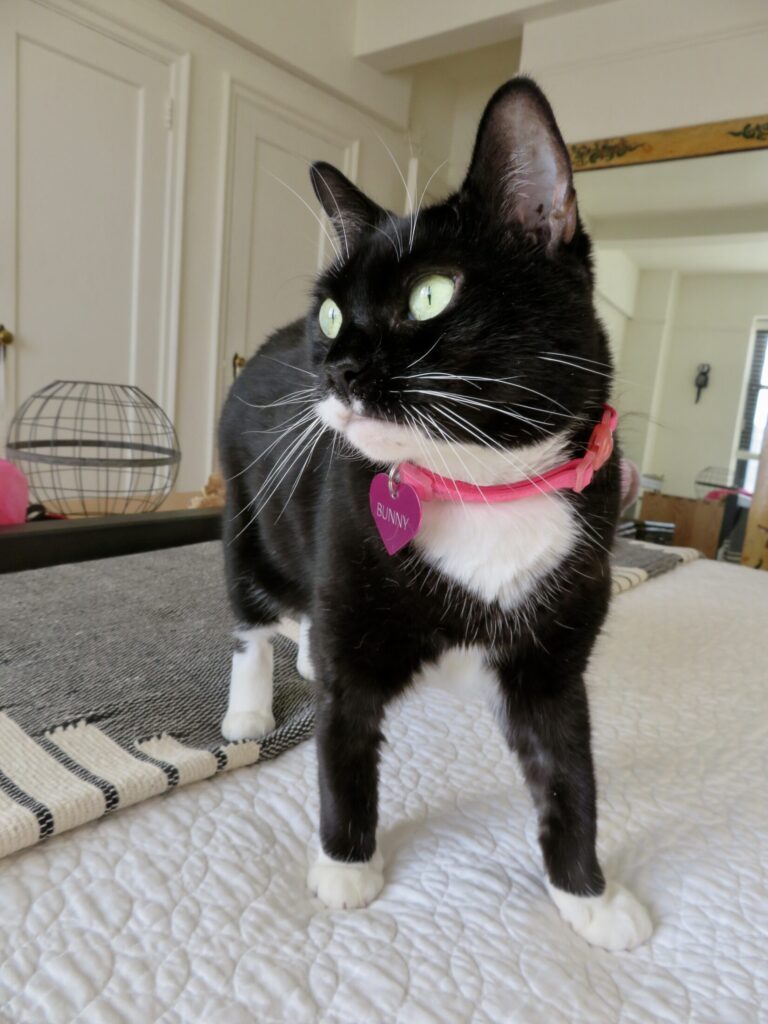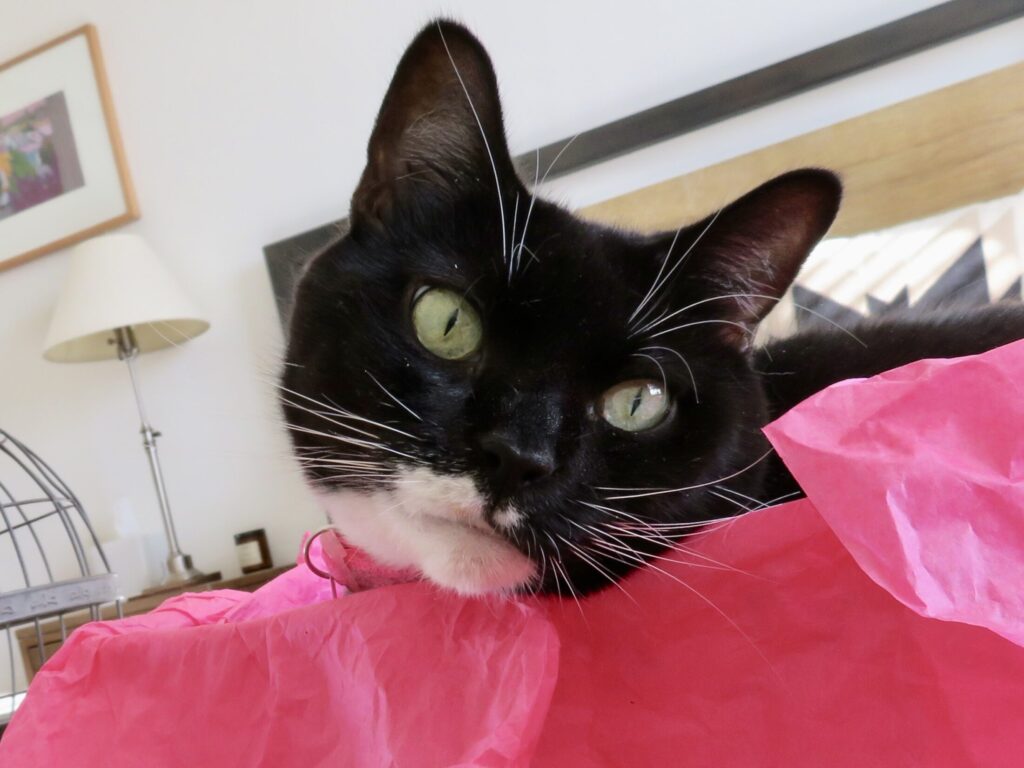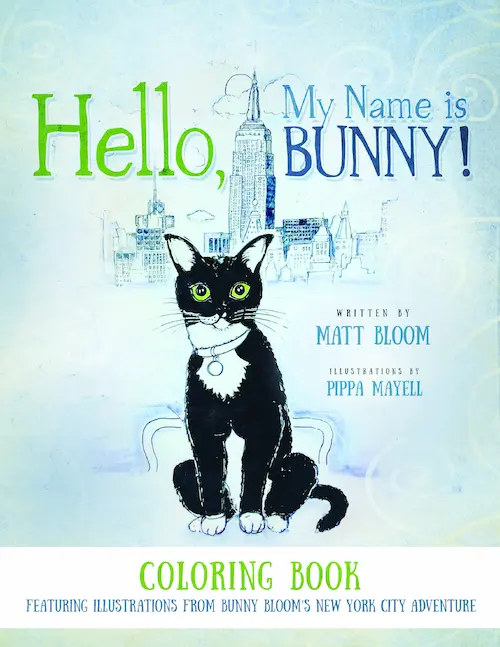May 17th, 2024 will be a special date in the Bloom household. That’s because it marks Bunny’s 10th Adoptaversary: the day we adopted her and brought her home from KittyKind, an amazing volunteer-run, no-kill New York City cat shelter.
We imagined many care-free, happy years ahead with our mischievous, confident Tuxedo girl. Little did we know that roughly 18 months later, in early 2016, we would face eight weeks of pure worry, wondering if Bunny would even make it to her second adoptaversary. It was a horrible time.
Overnight, Bunny had stopped eating and had become lethargic. The only way we could stimulate her appetite was to take her to the vet’s for steroid injections. She had every test under the sun and at one stage they told us it might be a brain tumor. It was devastating. Yet, her bloodwork came back normal, and every test was negative.
After about a month, we asked our local vet to refer us to the experts at the much-respected, much-loved Animal Medical Center (AMC) on East 62nd Street in Manhattan. Bunny was admitted for a series of tests including an MRI and even a spinal tap. Running low on options, our incredible, caring AMC vet decided to send Bunny’s bloodwork to a specialist lab in California. (By the way, we were so grateful we’d signed up for pet insurance when we adopted Bunny!)
An Irritable Bowel Disease diagnosis
After several more days, we had the diagnosis: irritable bowel disease (IBD), which the vet explained was likely Bunny’s body reacting to certain ingredients. Proteins can often be a trigger, even though some form of protein is essential to a cat’s diet. They are obligate carnivores after all!
So, under the close supervision of the vet, we started by eliminating chicken, beef, and lamb from Bunny’s diet, as he told us these ingredients can often be the trigger for IBD-prone cats. Apparently, cats with IBD can sometimes tolerate duck and fish much better, so we switched her to limited ingredient foods solely containing either duck or fish like salmon and cod. We also added probiotics to her diet, at first we used a human grade probiotic that the doctor recommended, before switching to Purina’s FortiFlora for cats, which works beautifully.
(It goes without saying that if you’re reading this and would like to change your cat’s diet, it’s important to discuss with your vet first.)
Within a few days of switching to her new diet, Bunny was transformed and back to her old self. It’s hard to express just how relieved we were to have finally found a way to manage her disease.
Ways in which IBD can show up
It didn’t end there, though. Bunny continued to have hot spots (itchy, irritated skin) on her legs and intermittent acne on her chin – all related to her IBD. We discovered that going further with limited ingredient foods helped. So, these days, she has single ingredient freeze dried salmon for treats, canned salmon and tuna with just three natural ingredients, and a fish broth with just five ingredients to keep her hydrated. Her dry food contains duck. We even make sure her litter is unscented and free of chemicals, as fragrances and chemicals can sometimes cause skin problems for IBD-prone cats.
Today, Bunny is as boisterous and energetic as when we first adopted her. We’re sharing our story for those whose cats may have a mystery illness or have been diagnosed with IBD. We know how stressful it can be to go through this and eventually find what works for your favorite fur family member. The good news is, with just a few adjustments and a willingness to experiment, it is possible to manage your cat’s IBD so that they can live the long kitty dream life they deserve!
If you’re interested to know Bunny’s current diet, here’s the list below:
Natural Balance Duck & Pea Limited Ingredient, Grain Free Dry Cat Food
Reveal Natural Grain Free Tuna Fillet & Salmon in Broth Wet Cat Food
Pure Bites Tuna & Salmon Broth Food Topping
Vital Essentials Salmon Freeze-dried Raw Cat Treats
Thanks for reading this. We hope this helps if your cat has recently experienced something similar and you are scratching your head, wondering what to do. If you have questions about our post, feel free to DM us on Instagram or Facebook.
Love and Purrs,
Shelley and Matt (Team Bunny)
P.S. This is not a sponsored post. We just want to share our experience in case it is helpful for anyone going through something similar.



